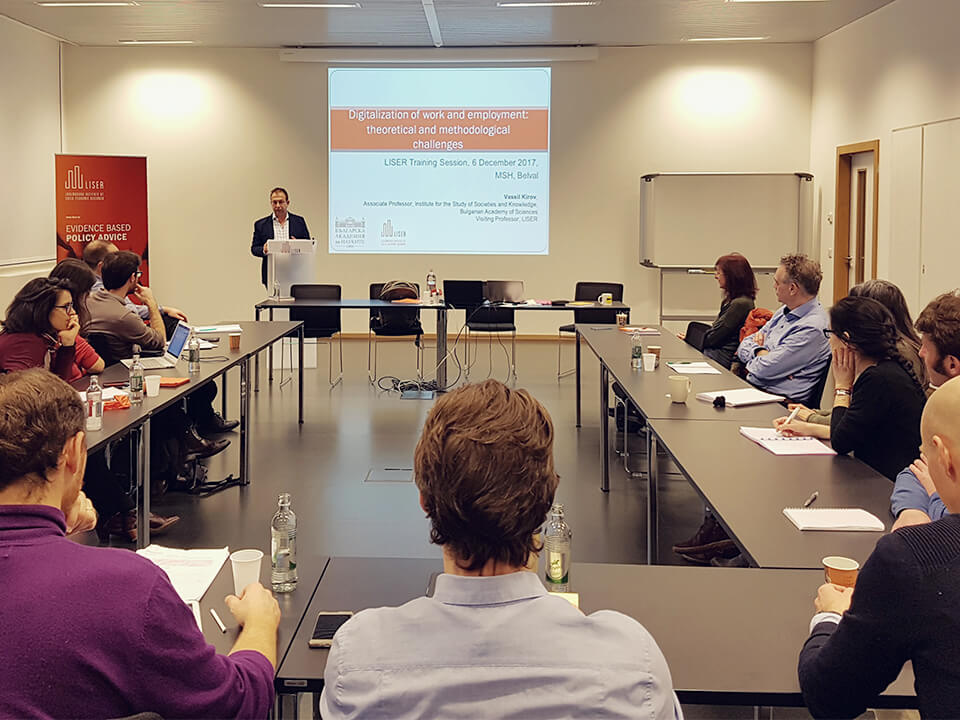News
Research Seminar Wrap-Up | Digitalisation of work and employment: theoretical and methodological challenges
How will ‘virtual work’ shape society and the labour market?
LISER hosted a training lecture by Prof Vassil Kirov (Bulgarian Academy of Sciences, Sofia and Visiting Professor at LISER) on the impact of digitalisation on employment through the lenses of sociological approaches. Among the participants figured researchers and students from LISER, STATEC, the University of Luxembourg and HEC Liège. The objective of the lecture was to present and critically discuss the theoretical debates in sociology related to the digitalisation of work and employment.
Patrick Thill, researcher at LISER, opened the lecture by emphasising that digitalisation has figured among the top priorities on Luxembourg’s policy agenda and that the impact on employment, professions, training, and the labour market more broadly require further scientific attention.
Firstly, Prof Kirov addressed the dilemma of digitalisation as a disruption vs. incremental change. The critical case of the rising Gig economy was mobilised to illustrate the ambiguous effects of digitalisation on employment. While digitalisation can have a positive effect by developing new forms of employment and working arrangements (virtual work), it also bears the risk of contributing to the fragmentation and precarization of work (i.e. risk of increased atypical work)*.
Secondly, Prof Kirov presented a series of methodological challenges from the sociological research on digitalisation. Based on examples from recent research on a number of sectors in Europe (such as financial sector, manufacturing, public services), participants identified research gaps and a lack of appropriate methodological solutions. Several participants raised the question during a discussion as to how to measure digitalisation, which constitutes a particular challenge for academia. Participants concluded that the exploration of innovative methods includes the utilisation of big data, the adaptation of existing surveys, the introduction of new indicators, as well as the combination of quantitative and qualitative research methods to study digitalisation.







